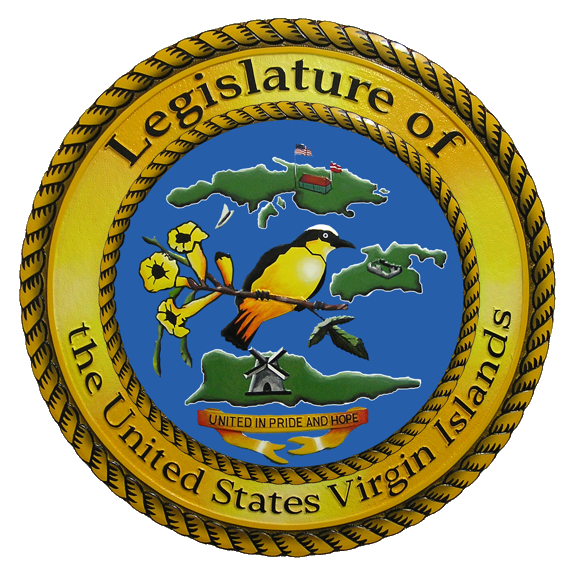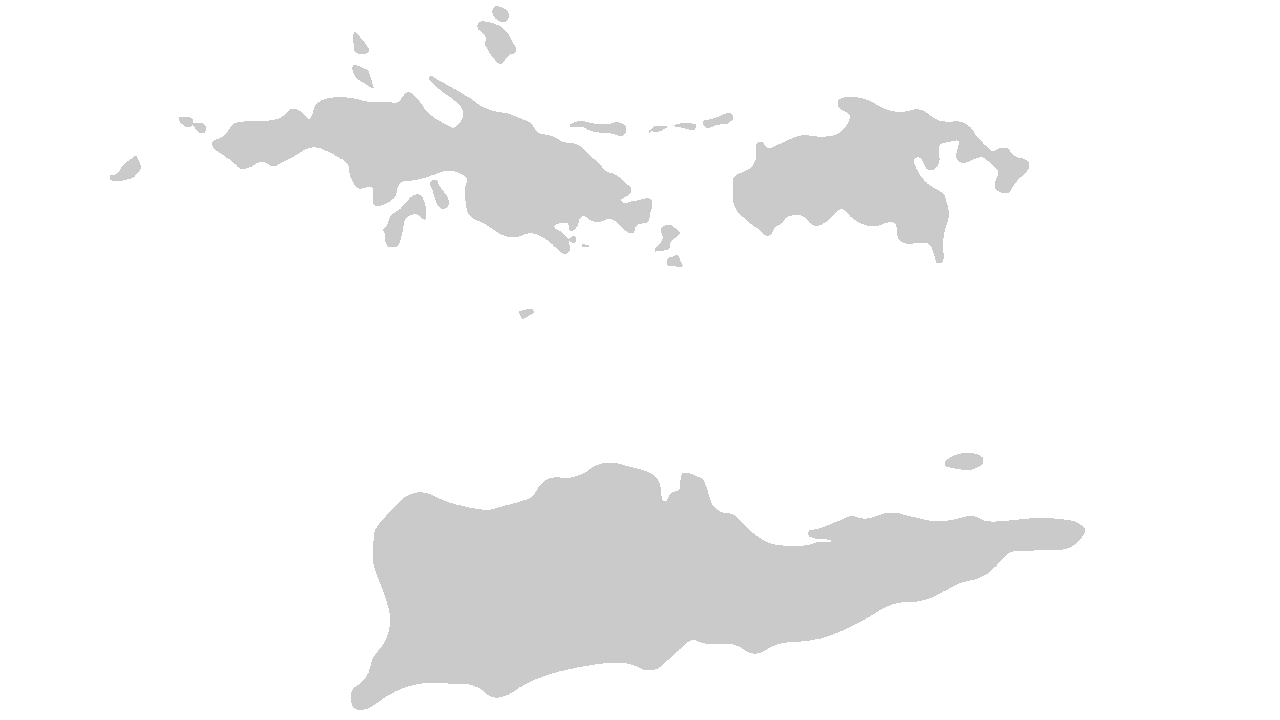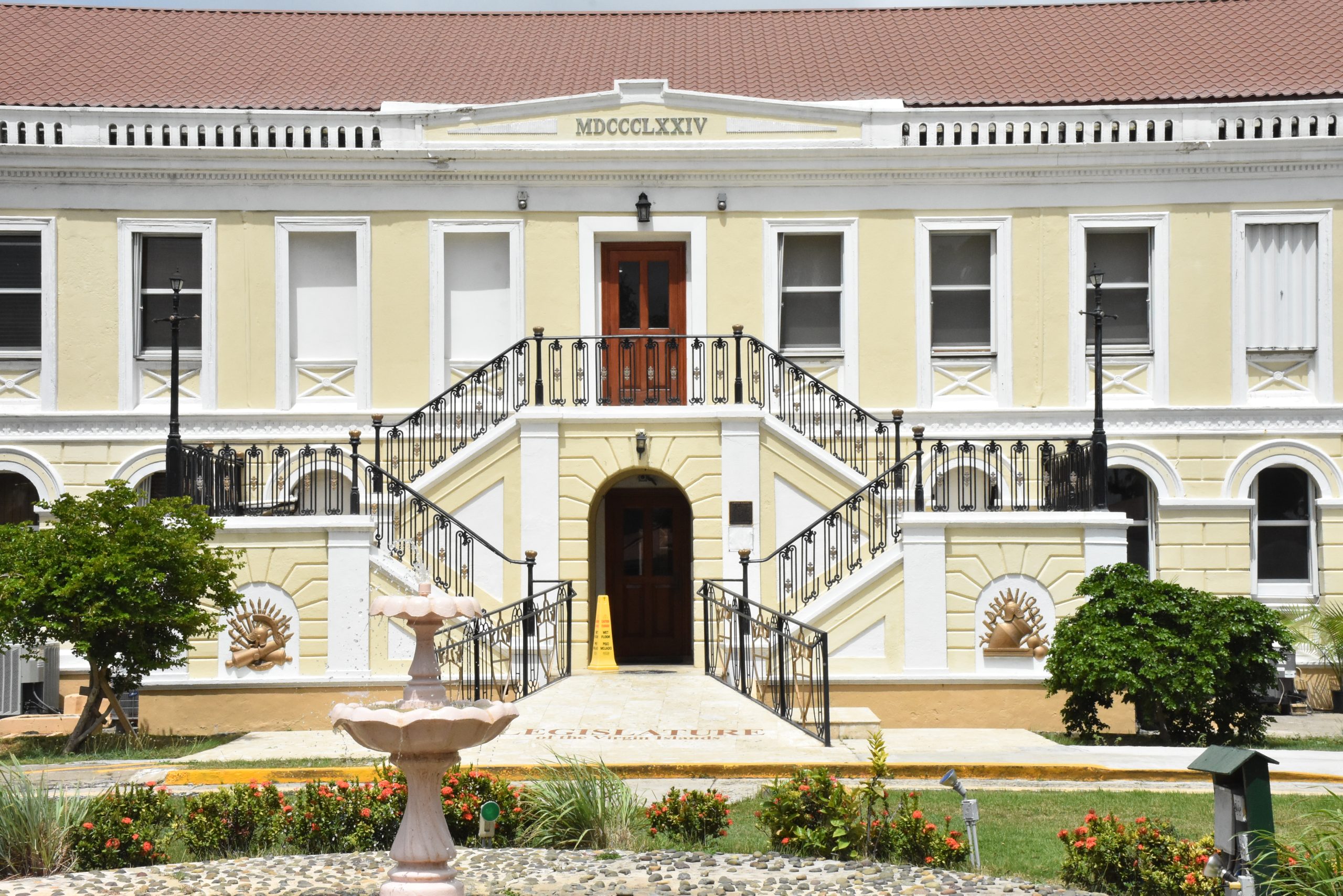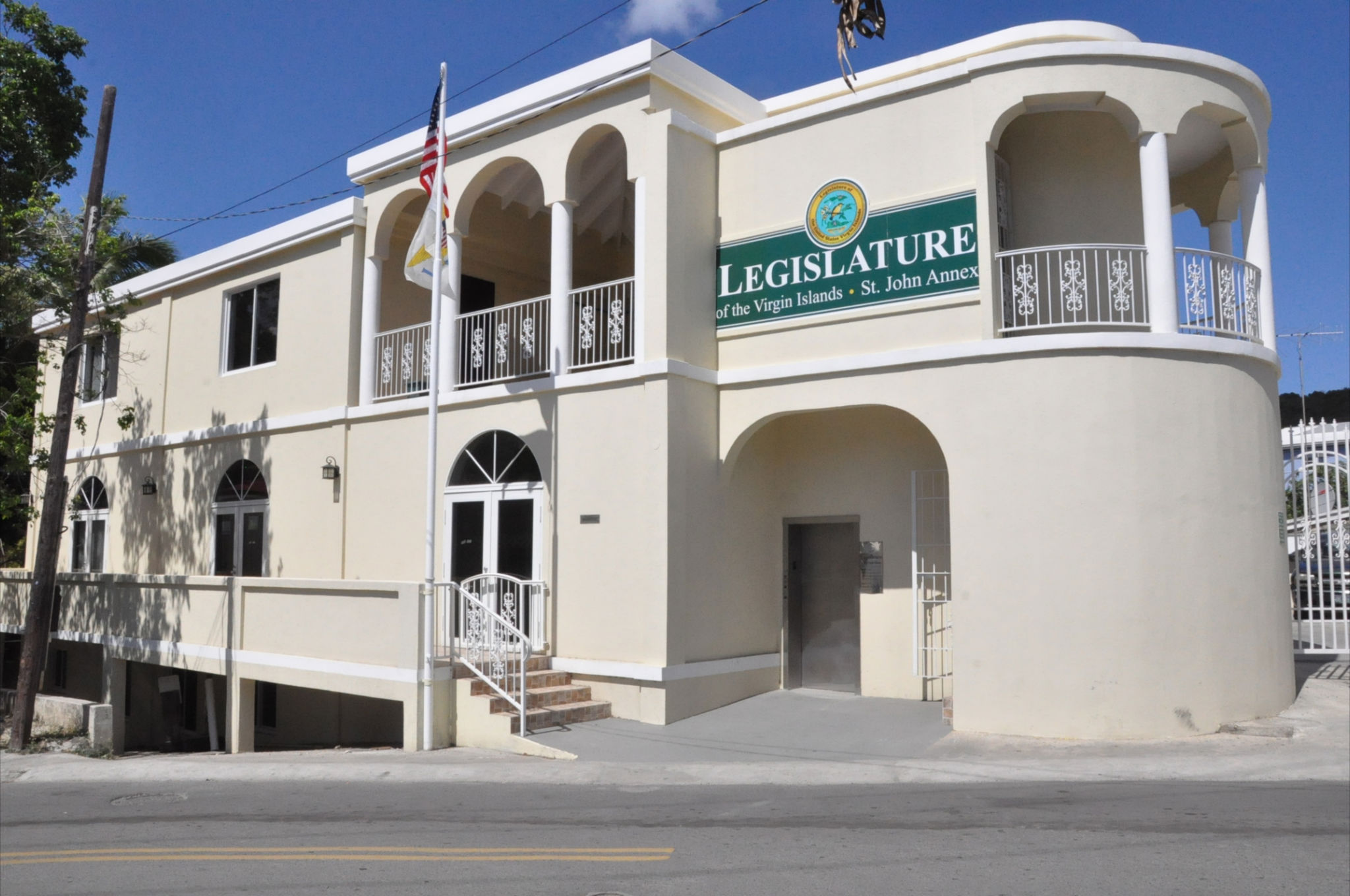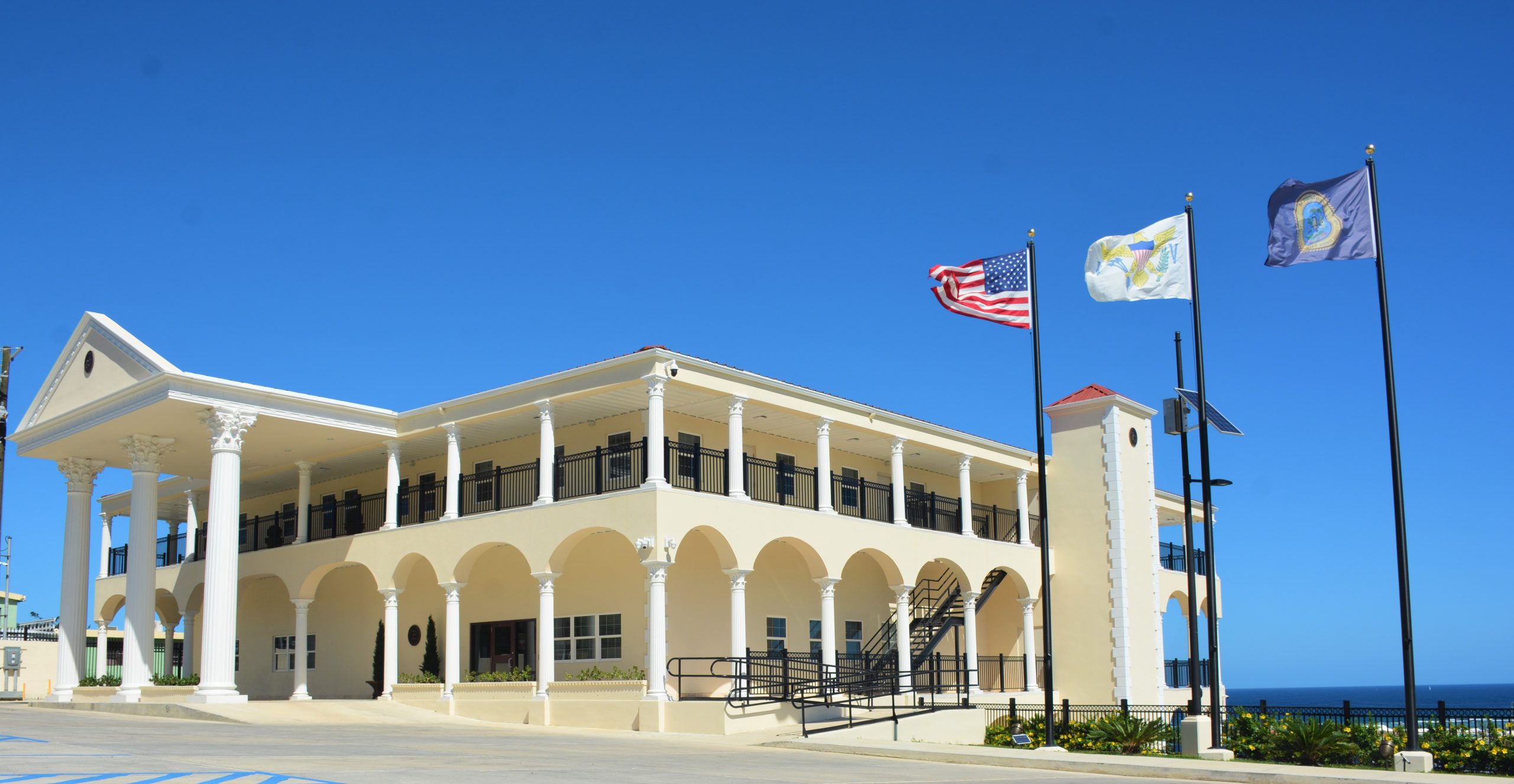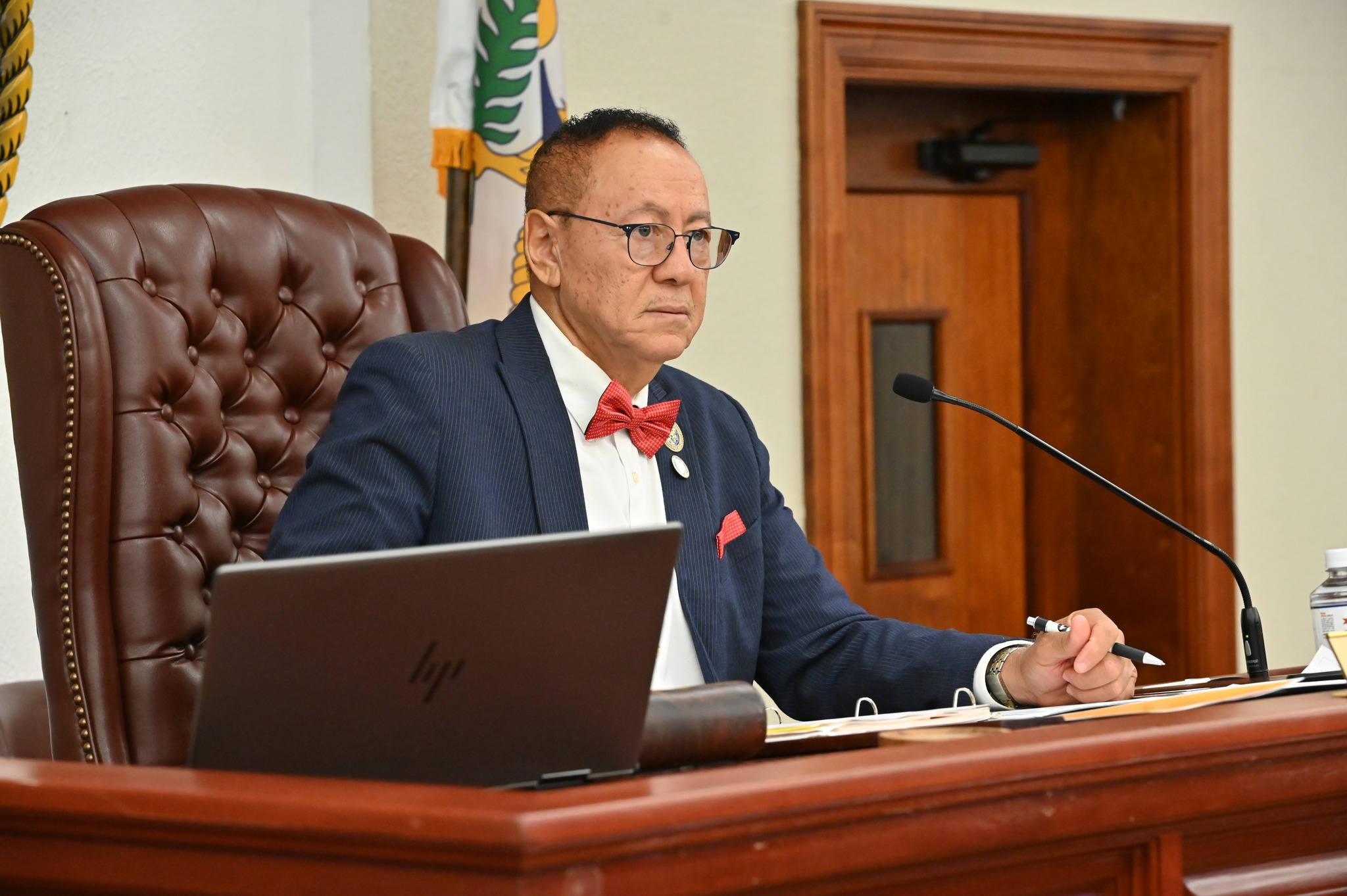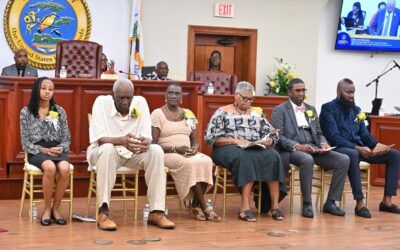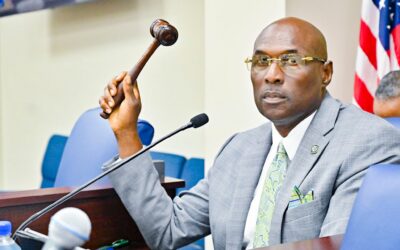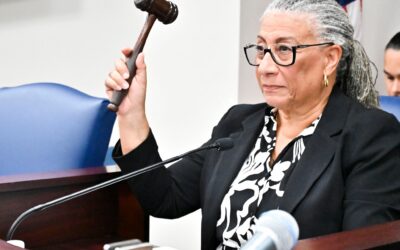ST. THOMAS, VI – The 36th Legislature of the Virgin Islands’ Committee on Health, Hospitals, and Human Services, led by Senator Ray Fonseca, met at the Earle B. Ottley Legislative Hall. Lawmakers considered a measure that would establish the services that nursing homes and assisted living facilities are required to provide. Senators also received a comprehensive overview of the challenges posed by direct discharge of minimally processed wastewater in public areas and brine discharge in our bays. Additionally, an update was received from the Schneider Regional Medical Center regarding the status of dialysis services on St. Thomas considering the temporary closure of the Caribbean Kidney Center, as well as updates from the Virgin Islands Healthcare Foundation. Today’s approved item will be forwarded to the Committee on Rules and Judiciary for further consideration and action.
Lawmakers considered Bill No. 36-0003, An Act amending title 19 Virgin Islands Code relating to nursing homes and assisted living facilities by adding a new chapter 76 to establish the services that nursing homes and assisted living facilities are required to provide; establishing limitations on financial charges, requirements for visitation, and the rights of a resident. The measure was proposed by Senator Angel L. Bolques, Jr.
Gordon Rhea, Attorney General of the Virgin Islands, delivered comments on the proposed measure. According to the National Council on Aging, 1 in 5 Americans aged sixty and older reported abuse during the COVID-19 Pandemic. However, it is estimated in another study that only 1 in 24 cases of abuse are reported to authorities. Rhea stated that the Department of Justice supported the bill in theory, but voiced concerns. Additionally, Rhea stated that the bill did not specifically designate which GVI agency would have oversight of the territory’s nursing homes and assisted living facilities. The agency should be responsible for conducting on-site surveys of nursing homes and assisted living facilities and reporting the results to CMS (Centers for Medicare and Medicaid Services). Rhea recommended that the Department of Health be the agency that is charged with oversight of the facilities. Rhea also stated that the bill did not include a system for reporting violations of the proposed legislation and stated that a reporting mechanism would help protect seniors by identifying and addressing violations. He stated that the Department of Health would be the appropriate agency to receive, investigate and manage claims of violation.
Troy deChabert-Shuster, State Director of AARP in the Virgin Islands, voiced staunch support of the measure. According to deChabert-Shuster, the territory is rapidly aging, with over 20% of the population being sixty and older, with projections showing continued growth in the next two years. The territory currently lacks the infrastructure to meet the demand, stating that the Virgin Islands no longer has a Medicaid certified nursing home. deChabert-Schuster proposed amendments that would include expanded definitions for care aligned with federal funding, transparent licensed standards, stronger oversight, and a commitment to equity and workforce development.
Taetia Phillips-Dorsett, Assistant Commissioner of the Virgin Islands Department of Human Services, voiced staunch support for the proposed measure. She called the bill a critical advancement towards fostering improved accommodations, living conditions, and protections for residents. Philips-Dorsett stated that the Department’s practices already reflected core principles found in the legislation. The Herbert Grigg Home for the Aged, on St. Croix and the Queen Louise Home for the Aged, on St. Thomas both operate under guidelines set forth by CMS. Admissions to these facilities are not based on financial means but by individual needs and placement on the waiting list. Phillips-Dorsett strongly endorsed the measure, but endorsed amendments to improve clarity, implementation, and inclusion. She recommended that the bill be expanded to include those with disabilities, prohibiting prepayment as a condition and admission, requiring facilities to assist with Medicare and Medicaid applications, and mandating written, itemized disclosures for non-covered services. The Department also recommended a 12-month implementation period with compliance plans due within 90 days and highlighted the importance of recognizing legally documented representatives. After further discussion of the matter, the proposed measure was voted upon favorably.
Lawmakers later received an overview of the growing challenges posed by the discreet discharge of minimally processed wastewater in public area and brine discharge in bays.
Daryl Griffith, Interim Executive Director and Chief Financial Officer of the Virgin Islands Waste Management Authority delivered testimony. Griffith said that 60% of the Virgin Islands’ residents are served by the Authority, providing wastewater services, including pumping, treatment, and disposal services. Griffith reminded the body that the wastewater infrastructure in the US Virgin Islands is aged and failing, leading to numerous challenges for the authority, stating that it is becoming increasingly expensive and difficult to operate and maintain. Wastewater infrastructure is operated and maintained by the wastewater division of VIWMA and is comprised of three sections, the Sewer Collection System, the Sewer Transmission and
Wastewater Treatment. The Sewer Collection system is the oldest section of the sewer infrastructure. There are more than ten locations in the territory that are deemed catastrophic failures, and the cost of repairs exceeds $100,000. Additionally, the Gut Sewer system in Charlotte Amalie has become concerning, Griffth stated that after Tropical Storm Ernesto, the Savan Gut system was inundated with dirt and stone, which caused a blockage. The authority is working on emergency repairs and planning extensive repairs and upgrades.
Nicole Craigwell-Syms, Assistant Commissioner of the Virgin Islands Department of Health delivered testimony explaining the severe public health and environmental risks posed by untreated sewage discharges in the US Virgin Islands, highlighting the danger of bacteria, viruses, parasites, and airborne contaminants towards vulnerable populations such as the elderly, pregnant women, and immunocompromised individuals. The Department of Health and partner agencies actively monitor wastewater and environmental conditions through advanced surveillance systems, enabling early detection of disease outbreaks, and conduct routine testing to ensure water quality and public safety. Craigwell-Syms advocated for infrastructure improvements and enforcement against illegal dumping to prevent future sewage discharges. The Department of Health has committed to collaborating with stakeholders to expand wastewater monitoring.
Don Gregoire, Interim Chief Operating Officer of Water Distribution delivered testimony. WAPA owns and operates approximately 7,100 active water accounts in the St. Croix District and 6,900 in the St. Thomas-St. John District. The reverse osmosis water treatment facilities are owned and operated by the Seven Seas Water group under a longstanding public private partnership with the authority. Gregorie stated that since the introduction of the Reverse Osmosis technology in the territory 30 years ago, the authority has not experienced any exceedances related to brine discharges operations. Brine is the concentrated saltwater byproduct remaining after freshwater extraction through reverse osmosis membranes. The Seven Seas RO plans operate at a recovery rate of 40%, meaning that for every 100 gallons of seawater processed, 40 gallons become potable water, and 60 gallons are discharged back into the ocean as brine. Daily brine discharge is carefully monitored and managed. St. Croix has the capacity to produce 3.7 million gallons per day (mgd) with peak consumption around 2.7 mgd, and St. Thomas has the capacity to produce 3.3 mgd with peak consumption near 2.9 mgd. Each facility generates roughly 1.0 million gallons per day of brine concentrate, consistent with industry norms for seawater desalination in tropical climates.
Brief testimony was read into the record from Jean-Pierre Oriol, Commissioner of the Department of Planning and Natural Resources. Orriol stated that many of the concerns raised about the discharge of sewage into water would be best addressed by the Department of Health, especially the Division of Environmental Health. While Oriol stated that the concern, while hypothetically correct was unsubstantiated, stating that DPNR’s Division of Environmental Health samples thirty-three of the territory’s most used beaches, testing them on Mondays and releasing the results on Fridays. Within the last year, there have only been two instances of elevated readings for bacteria. The Waste Management Authority must immediately report all upsets that results in discharges into the waters of the Virgin Islands. Oriol’s testimony stated that while there have been several occurrences within the last six to eight months, none of the upsets have occurred near the most used swimming areas.
Finally, Lawmakers received an update on dialysis services on St. Thomas. Tina Commissiong, Esq, MPA at Schneider Regional Medical Center, delivered testimony. Commissiong stated that the team was forced to step in to avoid crisis and patient harm when thirty-two hemodialysis patients were left without access to the treatments they needed. On July 1, 2025 at 3:47PM, SRMC received an email stating that the Caribbean Kidney Center would cease operations effective 5PM that same day, which provided less than two hours’ notice and offered no plan for patient transition. On the morning of July 2, 2025, dialysis patients began arriving at SRMC’s emergency department, reporting that they had been turned away from CKC. Commissiong stated that no communication or clinical hand off was made to SRMC’s interim Chief Medical Officer, Director of Hemodialysis Services, attending nephrologist, ERSD program administer or Case Management Team. Commissiong stated that CKC’s actions constitute patient abandonment, an ethical, clinical, and regulatory offense. Additionally, Commissiong stated that SRMC was able to absorb the huge surge in patients because the hemodialysis unit had been expanded in October 2024 with twelve additional treatment stations. Furthermore, SRMC was able to treat the additional patients because of it having “hurricane stock,” where supplies were ramped up in preparation of the hurricane season. Commissiong voiced the need to replenish the supplies, especially as hurricane season continued, as well as asked for future budget allocations for more funding to the SRMC.
Walter Gardnier, MD, Medical Director and Managing Member at the Caribbean Kidney Center stated that the reason for suspension of services at the Center was due to unexpected family health emergencies for three of its critical staff members, which placed immense stress and pressure on the remaining team. Gardiner stated that this would potentially expose patients to unnecessary risks and contribute to stress and burnout of the team members. Testimony was also read into the record from Tasnim Khan, MD, Medical Director at the Virgin Islands Healthcare Foundation Renal Center stated that it has the capacity to accommodate seventy-eight dialysis patients. It currently serves thirty-one patients, 6 days a week with two shifts a day. It can assume care of an additional forty-seven dialysis patients if needs arise. However, Khan’s testimony stated that it was important to receive full cooperation in obtaining patient records, add additional shifts, assign personnel to work 10-14 hour shifts to uphold standards of care, and hire additional staff if needed.
Senator Fonseca voiced frustration at the abrupt closing of the Caribbean Kidney Center, stating that he has lost confidence in it, and said he would not vote for any further funding for it.
Senators present at today’s Committee hearing included Ray Fonseca, Hubert L. Frederick, Marvin A. Blyden, Alma Francis Heyliger, Carla A. Joseph, Clifford A. Joseph, Sr., Avery L. Lewis, and Milton E. Potter.
The Division of Public Affairs is committed to providing the community with accurate information on legislative proceedings and other events at the Legislature of the Virgin Islands. Visit legvi.org.
####
